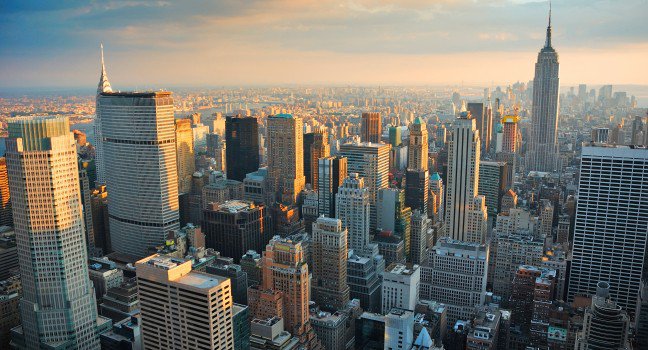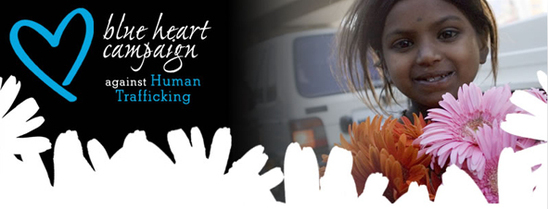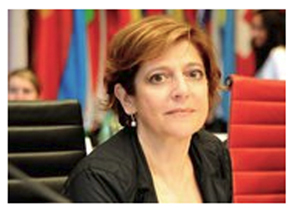Christopher O. de Andrés
Trafficking in human beings is a modern form of the ancient global slave trade. Its origins go back to the beginning of the Roman Empire, where the availability of slaves was substantial and legal norms justified the use of them. According to the International Labour Organisation (ILO) every year 2.5 million people are trafficked worldwide. In this context, the OSCE (Organization for Security and Cooperation in Europe) estimates (1) that the total unlawful profits produced in one year by trafficked persons are estimated to be USD 32 billion.
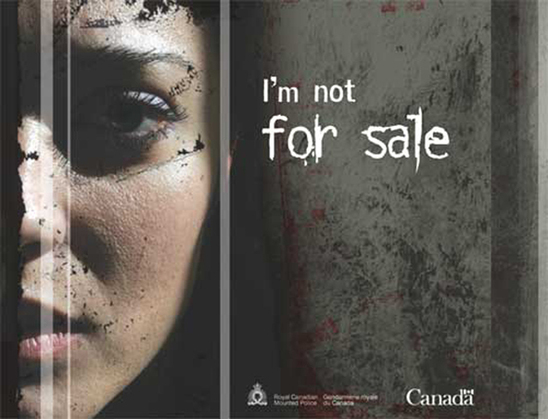
I'm not for sale campaign, Canada
One of the most reputable experts on this issue, Ms. Maria Grazia Giammarinaro, OSCE Special Representative and Co-ordinator for Combating Trafficking in Human Beings, recently said that “Human trafficking for labour exploitation is a modern-day slavery that occurs on a massive scale”. Yet, following this enlightening assertion, trafficking in human beings is both a grave violation of human rights and probably the most morally repugnant of all the illicit crimes against an individual’s dignity and freedom, where the persons are reduced to mere commodities to simply be put on sale. Children and women are still the main groups targeted by traffickers. All are desperate to make a living… and finally have their existences ruined by exploitation, violence and coercion.
Moreover, trafficking in human beings is still too often confused with human smuggling. It is important to understand that we are before two different crimes. I would highlight three main differences between both phenomena (2): The purpose of the action / movement - while smuggling always involves crossing a border, trafficking occurs both locally and across borders. The question of consent is a bit tricky but once the movement has taken place, consent is nullified in human trafficking because the victim ends up beings exploited. Initially the intention was to move somewhere else for work. In people smuggling occurs with complete consent. And the role of violence: while the first one is categorically a violent crime, the other is a migrant offence. For human traffickers violence is very much a part of the process, as victims need to be subdued and forced into compliance. Whereas people smugglers have little if any at all need to use violence. There is a customer relationship between the smuggler and the intending migrant: the smugglers have already made their profit from being paid to facilitate the movement.
Trafficking in human beings includes many forms of exploitation: sexual exploitation (the most well-known); labour exploitation (including domestic servitude); or other purposes such as forced begging/criminality and the removal of organs (and trafficking in organs, tissues and cells). Although all trafficking share a common cruel denominator: EXPLOITATION. It is critical to note that the most profit is generated from the continuing exploitation of the victim.
Moreover, trafficking in human beings is still too often confused with human smuggling. It is important to understand that we are before two different crimes. I would highlight three main differences between both phenomena (2): The purpose of the action / movement - while smuggling always involves crossing a border, trafficking occurs both locally and across borders. The question of consent is a bit tricky but once the movement has taken place, consent is nullified in human trafficking because the victim ends up beings exploited. Initially the intention was to move somewhere else for work. In people smuggling occurs with complete consent. And the role of violence: while the first one is categorically a violent crime, the other is a migrant offence. For human traffickers violence is very much a part of the process, as victims need to be subdued and forced into compliance. Whereas people smugglers have little if any at all need to use violence. There is a customer relationship between the smuggler and the intending migrant: the smugglers have already made their profit from being paid to facilitate the movement.
Trafficking in human beings includes many forms of exploitation: sexual exploitation (the most well-known); labour exploitation (including domestic servitude); or other purposes such as forced begging/criminality and the removal of organs (and trafficking in organs, tissues and cells). Although all trafficking share a common cruel denominator: EXPLOITATION. It is critical to note that the most profit is generated from the continuing exploitation of the victim.
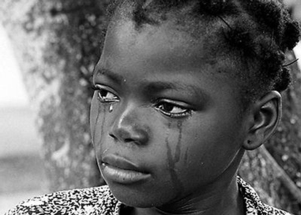
girls/women are one of the primary targets in human trafficking for sexual exploitation
The trafficker has quite absolute dominion over the victim. The individual, once being lured into going with the traffickers – driven by opportunity, hope, despair, or simply the need to survive – has no decision-making power. The victim is absolutely vulnerable since can neither negotiate the destination, the means, the process, the conditions or the timings. Upon arrival at destination, a trafficked victim is captive; doomed to pay an insurmountable debt. His/her documents are confiscated and they are often exposed to ill and degrading treatment (many times to the extreme of psychological and sexual abuse).
Victims of trafficked have to live for the rest of their fates with an indelible scar, which will linger on for too many years within their minds and souls. In order to tackle this gross violation of human rights, fundamental freedoms and human dignity, in 2003 OSCE Ministerial Council endorsed a comprehensive Action Plan to Combat Trafficking in Human Beings, containing recommendations in three pivotal points:
• Prevention, including awareness raising and addressing root causes;
• Prosecution, including investigation and law enforcement international co-operation and;
• Protection of victims’ rights, including assistance and compensation.
Today’s unscrupulous criminals are aware that an increasing number of people are more than ready to pay considerable amounts of money in the hope of finding a job opportunity, seeking for improvement of their lives somewhere in the developed world. In many of the 47 CoE (Council of Europe) States / 56 OSCE States, over 13% of the population are constituted by immigrants.
The deep financial crisis, debt crisis across the eurozone of recent months is changing European society. Unfortunately, undermining self-confidence and creating relevant uncertainty and some ‘psycho-panic’ while European leaders scramble to solve the economic downturn. On the other hand, immigration flows are modifying local and international popular trends. Globalization, economic crisis and migration trends are three concepts which appear to be strongly linked to trafficking for labour exploitation, particularly in the light of the dynamics of the (new) European most pragmatic lawmakers and 21st century political leaders prioritising to protect economic conditions of the life of society – jobs, wages, pensions, cost of livings, etc.
Victims of trafficked have to live for the rest of their fates with an indelible scar, which will linger on for too many years within their minds and souls. In order to tackle this gross violation of human rights, fundamental freedoms and human dignity, in 2003 OSCE Ministerial Council endorsed a comprehensive Action Plan to Combat Trafficking in Human Beings, containing recommendations in three pivotal points:
• Prevention, including awareness raising and addressing root causes;
• Prosecution, including investigation and law enforcement international co-operation and;
• Protection of victims’ rights, including assistance and compensation.
Today’s unscrupulous criminals are aware that an increasing number of people are more than ready to pay considerable amounts of money in the hope of finding a job opportunity, seeking for improvement of their lives somewhere in the developed world. In many of the 47 CoE (Council of Europe) States / 56 OSCE States, over 13% of the population are constituted by immigrants.
The deep financial crisis, debt crisis across the eurozone of recent months is changing European society. Unfortunately, undermining self-confidence and creating relevant uncertainty and some ‘psycho-panic’ while European leaders scramble to solve the economic downturn. On the other hand, immigration flows are modifying local and international popular trends. Globalization, economic crisis and migration trends are three concepts which appear to be strongly linked to trafficking for labour exploitation, particularly in the light of the dynamics of the (new) European most pragmatic lawmakers and 21st century political leaders prioritising to protect economic conditions of the life of society – jobs, wages, pensions, cost of livings, etc.
Besides, as the world and Europe are now recovering from the economic recession/s, we should remind ourselves of the lesson learn of the past 60 years: that the cohesive progress of the democratic society of Europe can only be based upon on upholding the universal values of human civilization - the respect for human rights and fundamental freedoms.
The recent 60th anniversary of the European Convention on Human Rights (2010) was a perfect opportunity to acknowledge that the Convention has become an unalienable part of the European identity. ECHR is not only a unique propagator of civilised values and democratic growth but also gives value to human dignity. This Convention is the basis for our rights and freedoms. In a broader scope we also have the Universal Declaration of Human Rights, proclaimed by the United Nations in 1948, involving political commitments with a wider setting. However, the European Convention (which entered into force in 1950) is a legally-binding charter with a specific Court, the European Court of Human Rights / ECoHR, judging on human violations. Beyond this, on the European arena, we have a key actor combating trafficking, the Convention on Action against Trafficking in Human Beings, first legally binding instrument against this crime and GRETA (the Group of Experts on Action against Trafficking in Human Beings), the legal body monitoring this mechanism. Furthermore, The Alliance against Trafficking in Persons is a consolidated international platform for co-operation, initiated by OSCE in 2004, composed of over forty international organizations (UNODC, UNICEF, UNHCHR, UNIFEM, ILO, IOM, the Council of Europe, Interpol, Europol, NATO, Save the Children, Terre des Hommes International Federation, La Strada international, etc.).
This is our legal structure with an intrinsic balance, our institutional support where our laws generate from while measures are being enforced/implemented by the above mentioned institutions which belong to us, the civil society. Laws also can create a framework for community action but only by the so called 'democratic or soft security' will ensure protection and enforcement of fundamental rights. Let me be clear: we ought to take a vital step forward, to build security by active participation and not merely by passive protection. To be a European citizen is to be a member of a community who fully enjoys individual rights as well as defends and enhances respect for human rights for other citizens.
The recent 60th anniversary of the European Convention on Human Rights (2010) was a perfect opportunity to acknowledge that the Convention has become an unalienable part of the European identity. ECHR is not only a unique propagator of civilised values and democratic growth but also gives value to human dignity. This Convention is the basis for our rights and freedoms. In a broader scope we also have the Universal Declaration of Human Rights, proclaimed by the United Nations in 1948, involving political commitments with a wider setting. However, the European Convention (which entered into force in 1950) is a legally-binding charter with a specific Court, the European Court of Human Rights / ECoHR, judging on human violations. Beyond this, on the European arena, we have a key actor combating trafficking, the Convention on Action against Trafficking in Human Beings, first legally binding instrument against this crime and GRETA (the Group of Experts on Action against Trafficking in Human Beings), the legal body monitoring this mechanism. Furthermore, The Alliance against Trafficking in Persons is a consolidated international platform for co-operation, initiated by OSCE in 2004, composed of over forty international organizations (UNODC, UNICEF, UNHCHR, UNIFEM, ILO, IOM, the Council of Europe, Interpol, Europol, NATO, Save the Children, Terre des Hommes International Federation, La Strada international, etc.).
This is our legal structure with an intrinsic balance, our institutional support where our laws generate from while measures are being enforced/implemented by the above mentioned institutions which belong to us, the civil society. Laws also can create a framework for community action but only by the so called 'democratic or soft security' will ensure protection and enforcement of fundamental rights. Let me be clear: we ought to take a vital step forward, to build security by active participation and not merely by passive protection. To be a European citizen is to be a member of a community who fully enjoys individual rights as well as defends and enhances respect for human rights for other citizens.
To this end, on one hand we need to ensure the most effective co-ordination among international organizations based on mutual trust and close partnership such as The Alliance against Trafficking in Persons. On the other hand, civil society, NGOs and private sector are key partners to address trafficking and raise awareness about this phenomenon (e.g. CSR initiatives, reintegration of victims upon their return to their country of origin or social inclusion in their host country). To avoid that buyers and sellers of human flesh are neither a menace to vulnerable groups nor a challenge to human dignity, a proactive approach is required aiming at supporting and empowering trafficked persons; stepping up criminal justice response; and detecting emerging threats for security at the global and regional levels.
We must have confidence in our democratic core values – democracy, human rights and the rule of law – the values for which we have fought. In the near future, we do need strong political will and specific resources within our institutions to manage adequately proactive action on the ground to prevent trafficking and promote protection of victim’s rights. Simultaneously, we should – each one of us – over 800 million European citizens, to be engaged in this OSCE’s innovative ‘human rights-based approach’ and take the challenge to wear and safeguard our rights, freedoms and human dignity in our times of rapid change and constant economic fluctuations.
After all, the issue we are dealing with is human rights conjugated with human beings. Therefore, I believe it is worthwhile to step forward NOW.
“My thoughts go to the many people who have lost their freedom and control over their lives, to those people – mainly women and girls – who are forced into prostitution; to those who are trapped in debt bondage, and compelled to work long hours without receiving a salary in agriculture, construction, domestic servitude; to those children who are obliged to beg or to steal for the advantage of their exploiters... The rights and interests of these people must always take first place. This is the human rights-based approach the OSCE has always adopted in combating human trafficking”, emphasized Ms. Maria Grazia Giammarinaro, OSCE Special Representative and Co-ordinator for Combating Trafficking in Human Beings.
We must have confidence in our democratic core values – democracy, human rights and the rule of law – the values for which we have fought. In the near future, we do need strong political will and specific resources within our institutions to manage adequately proactive action on the ground to prevent trafficking and promote protection of victim’s rights. Simultaneously, we should – each one of us – over 800 million European citizens, to be engaged in this OSCE’s innovative ‘human rights-based approach’ and take the challenge to wear and safeguard our rights, freedoms and human dignity in our times of rapid change and constant economic fluctuations.
After all, the issue we are dealing with is human rights conjugated with human beings. Therefore, I believe it is worthwhile to step forward NOW.
“My thoughts go to the many people who have lost their freedom and control over their lives, to those people – mainly women and girls – who are forced into prostitution; to those who are trapped in debt bondage, and compelled to work long hours without receiving a salary in agriculture, construction, domestic servitude; to those children who are obliged to beg or to steal for the advantage of their exploiters... The rights and interests of these people must always take first place. This is the human rights-based approach the OSCE has always adopted in combating human trafficking”, emphasized Ms. Maria Grazia Giammarinaro, OSCE Special Representative and Co-ordinator for Combating Trafficking in Human Beings.
(1) 2010 Annual Report of the Special Representative and Co-ordinator for Combating Trafficking in Human Beings.
(2) United Nations Convention Against Transnational Organized Crime and the Protocols Thereto. Article/s 3.
(2) United Nations Convention Against Transnational Organized Crime and the Protocols Thereto. Article/s 3.
Tags :
ECHR
ECoHR
GRETA
Maria Grazia Giammarinaro
modern-day slavery
The Alliance against Trafficking in Persons
the OSCE Special Representative and Co-ordinator for Combating Trafficking in Human Beings
UNODC
Posted by Christopher Oscar de Andrés, on Friday, November 25th 2011 at 09:30
Category
Recent posts
Archives
#Team Management #Gestión de Equipo International Business Development #Gestión de Equipo Comercial
5 MISSION AREAS IN HORIZON EUROPE
Acceso universal al tratamiento del sida
ACNUR
actor Pepe Sancho
ADHESIÓN DE CROACIA A LA UE
advertising / teleshopping spots
Africa
Alianza Atlántica
Alianza del Pacífico
Alibaba
Alibaba Group Holding Ltd.
AlipayApp
Amnistía Internacional
Ana Pastor
AnálisisyGestiónInteligenteDeDatos
Angela Merkel
Banco Central Europeo (BCE)
Banco Mundial
Barack Obama
batalla del sector del taxi y VTC
Benjamin Franklin
Bill Gates
binomio chavismo / antichavismo
Blockchain opportunities in international public health care sector
Blockchain technologies in health care
Blog Posts
Boris Johnson
Brexit
BUILDING THE CITIES OF THE FUTURE
China
Comisión Europea
Coronavirus
Covid-19
COVID-19
Cybercrime
David Cameron
Editorial Universitas SA
EU Convention of Human Rights
European Commission
FMI
Henrique Capriles
Human Rights
ICAA
International Business Development
Jack Ma
Jean-Claude Juncker
Mariano Rajoy
Obama
ONU
OSCE
The Council of Europe
Thomas Hammarberg
UNED
UNHCR
Unión Europea
Vladímir Putin
